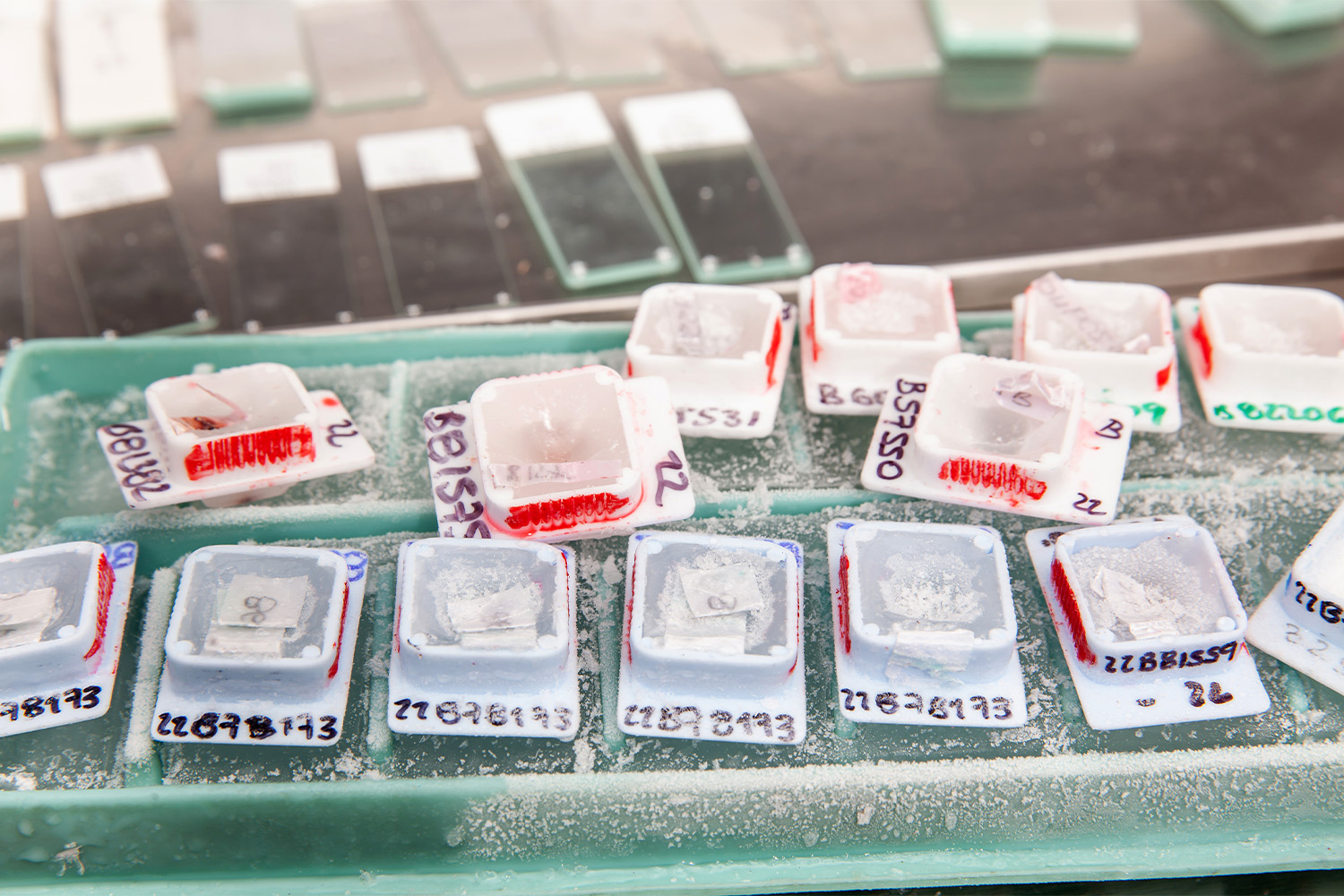
Rare diseases pose a variety of problems in the fields of medicine and research. Not only are they sometimes inherently difficult to diagnose, but they can be equally troublesome to treat.
Rare diseases often lack substantial qualitative and quantitative research outside diagnosis and treatment due to a lack of cases, funding, and publication impact.
What Are Rare Diseases?
According to the United States Food and Drug Administration (FDA), a rare disease is a disease that affects fewer than 200,000 people in the United States at any given time. While that may seem like a lot of simultaneous cases, 200,000 cases in a population of approximately 329 million only constitute cases in 0.06% of the population.
Additionally, about 8,000 diseases in the United States currently meet this definition, with only one percent of the population experiencing any given rare disease.
In the pharmaceutical industry, the FDA has given certain drugs a designation known as orphan drugs if they show promise in treating, preventing, or diagnosing a rare disease. This designation was enacted via the passing of the Orphan Drug Act in 1983.
This act benefits pharmaceutical companies by incentivizing the development of orphan drugs through financial benefits. Ultimately, the Orphan Drug Act facilitates the research and development of more drugs for patients with rare diseases.
What Challenges Can We Expect When Researching a Rare Disease?
Selecting an Appropriate Trial Design
Much deliberation goes into selecting a trial design for any research question. The gold standard is that a large, randomized controlled trial can reliably distribute a diverse patient population equally between treatment and control groups and subsequently detect even small effect-size differences in some circumstances.
Unfortunately, studying rare diseases suffers from several limitations that make conducting large, randomized trials difficult. The lack of diagnosed cases of a rare disease limits the available patient population to select from. Additionally, large trials can be very expensive and labor-intensive. Commonly, rare disease research also endures a lack of funding and staffing.
Often, rare disease research is forced to settle for small, uncontrolled trials by nature. Even these design decisions come with certain assumptions, such as assuming we know how the disease works physiologically. Many rare diseases have a genetic origin, and we simply do not know enough about them to predict an effect size in a clinical trial.
Researchers try to implement appropriate measurements to complement the trial design if possible. A control group enhances study validity and serves as a direct comparison to the active treatment comparator. However, due to ethical and logistical concerns, control groups are not always feasible depending on the rare disease.
There simply may not be enough enrollable subjects with the disease. It may not be ethical to withhold a potential disease-altering or life-saving drug in a rare disease state with high morbidity or mortality.
Due to trial design difficulties, the FDA has set a precedent for approving orphan drugs without large, phase III clinical trials implementing blinding, extensive randomization, and control groups. If a potential orphan drug were to fail in clinical trials, the FDA states that it should fall on lack of biological efficacy, not due to trial design flaws.
Selection of the Correct Sample and Ethical Recruitment
By nature, patients with rare diseases are few and far between. Besides the limited number of patients diagnosed with the disease, the few identifiable patients are usually geographically separated by great distances.
Additionally, many researchers simply are not trained or express no interest in rare diseases, making patient recruitment a logistical nightmare.
Many factors affect recruitment success. Trial availability in an area with low potential participant population density can be challenging if there simply are not enough participants with the rare disease being investigated. Additionally, limited site access, patient concerns, and low provider willingness to participate in the study intervention can dramatically decrease proper recruitment success.
Patients with rare diseases, like any other disease, are protected by the Health Insurance Portability and Accountability Act (HIPAA) and therefore have the right to privacy when it comes to their personal healthcare information. Researchers cannot recruit patients with rare diseases simply by searching medical records for legal and ethical reasons.
Outside of recruitment, retention can pose another significant problem with obtaining a satisfactory patient sample for research. Depending on the rare disease, considerable morbidity and mortality can be a concern and cause patients to be offered off-label medications outside of a clinical trial. This can deter potential patients from participating in research as well as motivate other patients to drop out altogether.
One proposed solution to the recruitment problem is to create a patient contact registry for rare diseases. This could be an opportunity for clinical research collaboration amongst interested researchers and motivated patients or patient proxies to further our knowledge of and capability to treat rare diseases.
Drug Development and Funding
Unsurprisingly, pharmaceutical companies tend to target developing high-dollar, high-impact blockbuster drugs for overwhelmingly prevalent disease states such as cancer, diabetes, and cardiovascular disease.
In 2018, Merck’s oral diabetes drug Januvia/Janumet (generic name sitagliptin) gathered $5.91 billion in total sales worldwide — and did not even crack the top 10 grossing drugs that year.
The Orphan Drug Act of 1983 financially incentivized drug developers to focus on developing drugs for rare diseases. In addition to the Food and Drug Administration Modernization Act of 1997, this incentivization made research and development of orphan drugs financially viable.
The new laws shortened the required development time for orphan drugs and allowed them to participate in FDA fast track and accelerated approval programs to reach the market faster, saving millions of dollars and years of development time in clinical trials.
Despite offsetting some of the drug development timeline costs, orphan drugs and rare disease research still suffer from inherent logistical hurdles that can ultimately offset some of these cost savings. For example, hiring the right staff and international recruiting can incur serious additional costs to a research budget.
Knowledgeable Study Staff
Enlisting the right research staff to perform the necessary research duties can also be a monumental task. Many researchers lack clinical expertise or motivation to perform research on rare diseases.
The clinical and regulatory demands of performing research on rare diseases can be intimidating and deter many researchers entirely.
Many of the previously discussed challenges deter researchers from attempting to study rare diseases as well. Accessing the limited number of patients can be a logistical, financial, and ethical challenge for small groups of researchers with limited resources.
Often, the scope of executing meaningful research on a rare disease is too daunting for most researchers pressured in academia to produce impactful and timely research for their respective institutions.
A connected network of researchers across the globe can facilitate a successful study of rare diseases. Additionally, patients and families of patients suffering from rare diseases can be a resource amongst themselves by forming advocacy groups to collaborate with scientists and researchers to raise funds and public awareness of the disease.
Utilizing a Clinical Research Organization
Clinical research organizations (CROs) provide researchers with the resources to perform even the most logistically challenging research task. At iProcess Global Research Inc, you can expect a team of recruiters dedicated to supplying optimum solutions for clinical research sites.
Of course, iProcess researchers are well-versed in clinical trial monitoring, regulatory affairs, patient recruitment and engagement, and research finance to assist in researching rare diseases.
The Bottom Line
Rare disease research comprises a variety of unique challenges that truly take a team of passionate individuals with the motivation and drive to perform desperately needed research in an array of understudied rare diseases.
Selecting the right trial design, sampling the correct patient population efficiently and ethically, and knowing how to navigate funding and development hurdles are key to conducting valuable rare disease research.
Let iProcess researchers help facilitate your important trials.
Sources:
Clinical Trials in Rare Disease: Challenges and Opportunities | PMC
Rare Diseases, Common Challenges | Nature Genetics
Progress, Challenges And Global Approaches To Rare Diseases | PMC




